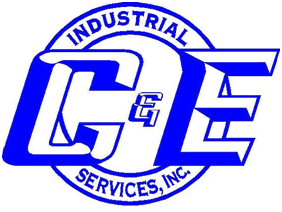
If we’d gotten a dollar for every time someone said commercial and residential HVAC were “practically the same,” then we’d have a 5-story office by now! But seriously, people seem to feel like commercial and residential HVAC are only different in size, which is only the tip of the iceberg. The truth is, it takes a great deal of information and equipment that’s different across the two, and our technicians need very specific skills to tackle each type of system.
At C&E Industrial Services, we handle the commercial side of HVAC but wanted to inform more people about its difference from the residential side. In this article, we’ll discuss the major differences between the two.
Equipment & Complexity
The equipment used in commercial HVAC is much more complex than in a residential setting. Most residential homes are fairly small, with most not exceeding two stories. Even for big families, the HVAC needs of their home won’t be nearly as intense as those of a commercial building.
Equipment and complexity also vary by type of business involved as well. For example, a regular office building will have many different needs than a restaurant, industrial plant, or a 24-hour gym. That leads to complexity, as the HVAC systems have to be optimized for specific requirements. Our technicians have to use factors like square footage, the number of occupants, business hours, and many more to decide what kind of equipment should be used. Residential homes, by contrast, generally don’t need much variance in terms of equipment and installation.
Maintenance & Maintenance Costs
As you could likely guess, the more complex and large an HVAC system is, the more specialized maintenance is required to keep it running properly. In some ways, though, residential can actually be the harder maintenance job. Commercial HVAC is typically set up in a modular system, meaning the units and equipment are all outdoors and can be accessed much easier. The system can also be expanded if need be, whereas a residential HVAC system is much harder to build upon.
Despite the ease of access, commercial HVAC still far outweighs residential on average costs. Complexity and expertise are the two main factors that drive up the price of commercial HVAC. You need highly skilled technicians to maintain the unique mechanisms that drive commercial systems because residential homes simply don’t require certain types of equipment.
The costs only increase if proper maintenance isn’t performed regularly, though. The costs of system failures will certainly be much more than maintenance, which is why we offer regular maintenance here at C&E. Not only does this help protect against major failures, but it will keep your business up and running so you don’t lose production.
HVAC Placement
As you have probably noticed, most residential HVAC systems are split between the outside and inside of the home. Part of the system may be in the backyard or on the side of the home, while the rest will be indoors. This actually makes accessing certain parts of the system slightly more difficult than commercial systems.
Commercial HVAC will often be stored on the roof or in a swamp cooler system. This provides a much more optimal maintenance space than residential since most of the system can be accessed without disrupting the business itself. It also cuts down on noise pollution in the building and saves space indoors.
Drainage Systems
As the complexity and size of an HVAC system grow, so does the drainage system. The drainage system for a residential unit is typically pretty small—a simple pan will usually suffice.
For commercial and industrial HVAC, however, you can expect a more robust system of pipes and pans to combat any overflowing. Intimate knowledge of how drainage works are incredibly important for these larger HVAC projects.
How You Can Protect Your HVAC System
While regular maintenance should only be performed by the experts, business owners can take certain steps to keep their HVAC up and running through the year. Changing the air filter, checking the thermostat, and even cleaning the outdoor condenser unit are all actions you can take on your own if you have the right knowledge.
Of course, for most people, it can be best to simply leave all maintenance tasks to the professionals, and that’s what we’re here for. We can check every part of your system, from the thermostat to the condenser unit to the control box, switches, and wiring. We can ensure your HVAC is in tip-top shape, so you can focus on what’s important to you.
Contact C&E Today For Quality HVAC Maintenance
Since you know now how complex commercial HVAC is, it’s important to make sure you have only the best working on your HVAC systems. Here at C&E, we have the Southwest’s leading HVAC technicians, boasting decades of experience in the field.
Contact us today or visit our office to see what maintenance services we can provide for your business!


